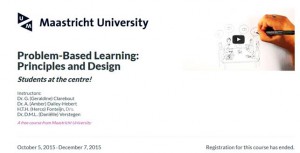Between July 13th and July 15th 2016 the Higher Education Conference took place in Amsterdam. It was a combination of the Special Interest Group on Higher Education of EARLI and the EERA Higher Education Network.
Two paper sessions dealt explicitly with blended and online education. It started with a seemingly promising contribution on MOOCs as a challenge for higher education. Jens Riehemann of the University of Muenster explained his research that focused on reducing the feeling of being one among many others in a virtual crowd as a way to enhance participation. Unfortunately he did not use a real MOOC to investigate this issue but provided students with paper vignettes. A second contribution of Hofmeister (University of Liverpool) questioned the further rubrication of learning outcomes. It was plea for reflective learning tasks that suggest open intersubjective educational relationships . Although not on online learning, the contribution on e-mobility (electrical mobility) of Antje Schilling (TU Braunschweig) provided an interesting design of learning environments. Round tables were uses in a course where 3 to 5 students from different fields of study collaborated on the same project.

